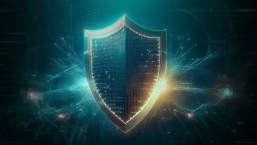Old joke: how can you tell a lousy drummer is at your front door? The knocks keep slowing down. Tempo of operations are similar in that if you can keep a fast, sustained rhythm outpacing the adversary, you’ll keep the initiative. If your side knows when the tempo is supposed to speed up or slow down, they can work as well together as Bruce Springsteen does with the E Street Band.
Visualizing Different Cyberwarfare Concepts
Forget the cyber in cyberwarfare, let’s just talk about effective warfare. Any operation which can continually keep the initiative will have the advantage.Sustained operations are the key to victory. Examining this picture may give the cyberwarfare researcher a deeper understanding of how any effective warfare is waged.
The diagram shows two versions of warfare we’ll apply to cyberwarfare:
The first, [Swarming] what would be most effective and probably what those who have studied military history (academic and applied) consider a prime example of a sustained operational tempo. This is also what bees do when their hive is threatened, hence the name. Examples of recent commentary which seems to support this vision of a cyberwar:
- Mike McConnell on how to win the cyber-war we're losing <- Washington Post
- Cyber ShockWave Shows U.S. Unprepared For Cyber Threats < Bipartisan Policy Center
- US China Security and Review Commission, 2009 annual report < uscc.gov Chapter 2.4 on China's activities impacting US security interests
The second [Guerrilla] is probably what most pundits of cyberwarfare who have little applied or academic military history background probably envision cyberwarfare being. And they would be right – to an extent with which the operational tempo could be sustained. Taking out centralized communication from a group of combatants, for example, removes their ability to coordinate effectively and slows down the dance.
Examples of recent commentary which seems to support this vision of a cyberwar:
- White House Cyber Czar: ‘There Is No Cyberwar’ <-Wired.com
- Cyberwar Hype Intended to Destroy the Open Internet <- Wired.com
And in this corner…
June 8th will see the face-off between Marc Rotenberg, EPIC / Bruce Schneier against Mike McConnell mentioned here and Jonathan Zittrain, Harvard Law Professor.
Intelligence Squared U.S. (IQ2US), the Oxford-style debate series, an initiative of The Rosenkranz Foundation, announced today that it would travel to Washington, D.C. to host its first ever debate outside of New York City. On June 8, IQ2US will present a special live debate from Washington D.C.'s Newseum. With corporate underwriting support from Neustar, Inc., the debate will consider the motion, The Cyber War Threat Has Been Grossly Exaggerated.
What Experts Say
Former Secretary of Homeland Security Michael Chertoff, who chaired the simulated National Security Council, said cyber-terrorism “ought to be treated as a threat of sufficient seriousness that we give it the priority attention we’ve given weapons of mass destruction.” Cyber-terrorism is “more complicated by the fact that it involves every individual. Anybody who has a smart phone, who downloads an app or gets on their PC is engaged in this process.”
This just in: Al Qaeda’s use confirmed…
According to this US News and World Report article…
- Al Qaeda "also sabotaged other websites by launching denial-of-service attacks, such as one targeting the Israeli prime minister's computer server," court records show. The Israeli embassy in Washington had no comment on the information published in the court records. Denial of service attacks are common and relatively easy and cheap to coordinate. They aim to overload and temporarily disable websites for the duration of the attack. Al Qaeda's interest in the tactic, however, has received little discussion and attention.
So on one side you have markedly civilian technology experts stating that cyberwar is nonexistant, and on the other you have markedly military or government resources stating that cyberwar / cyberterrorism is a very real threat. The faces and names seem to stay consistent throughout administrations as well, offering a bipartisan flavor to it all.
Securing Our eCity Contributing Writer





